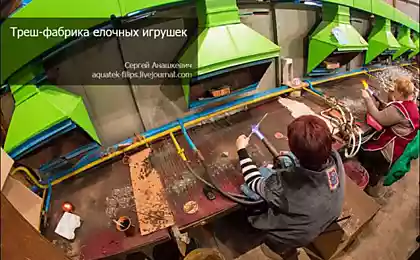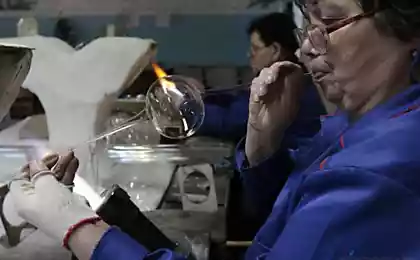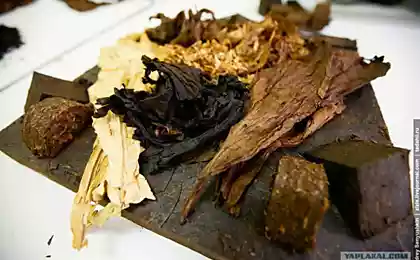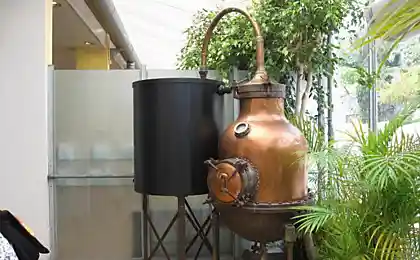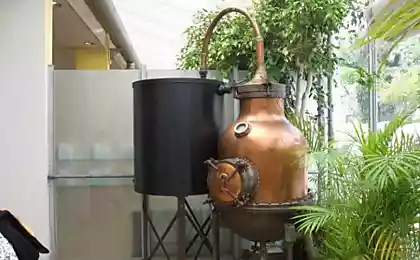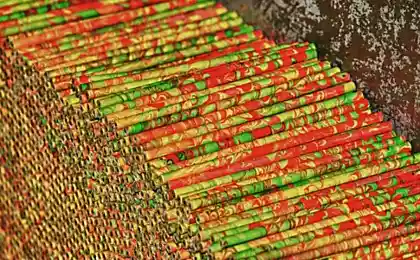632
Factory dzhipni
Writes blogger Ilya Varlamov traveler:
Today I'll show you how to make an unusual Filipino transport - buses jeepney. Initially, for the production of these unusual machines use the original US military off-road Jeep, which left here a lot after the war. Enterprising Filipinos elongated base SUV and make a bus. Soon, the original raw materials ran out, and the love of the jeepney, so called new car remained. Across the country there are hundreds of handicraft workshops where hand began to collect cars. There are large studios that produce several jeepney per month (all individual orders). Some craftsmen make dzhipni themselves. There are several factories where production put on stream. According to one of these plants, and today is our tour.
34 photos
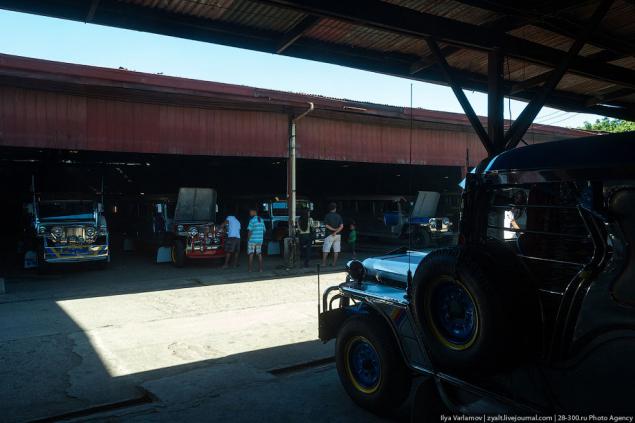
01. Sarao was once one of the largest factories for the production of dzhippni. Now, after the death of its founder, it passed to his son, who in this case, apparently, not very knowledgeable, so production was strongly reduced.
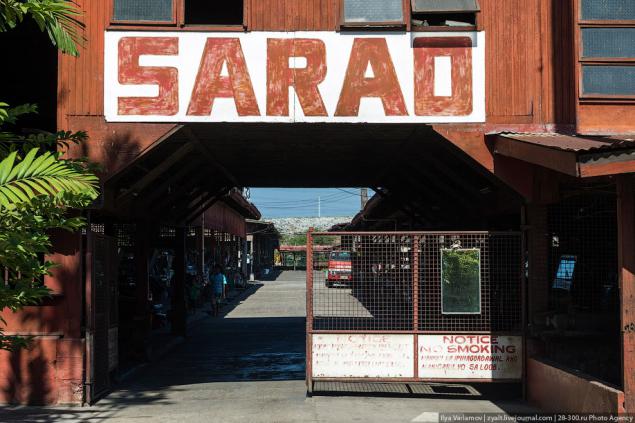
02. Please make a primitive frame.
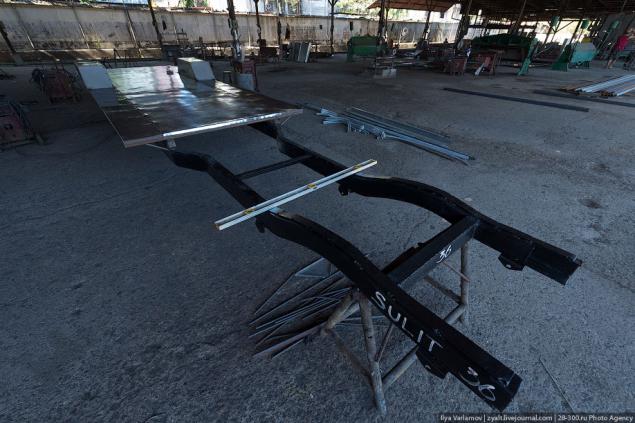
03. The only machine in the factory looks like.
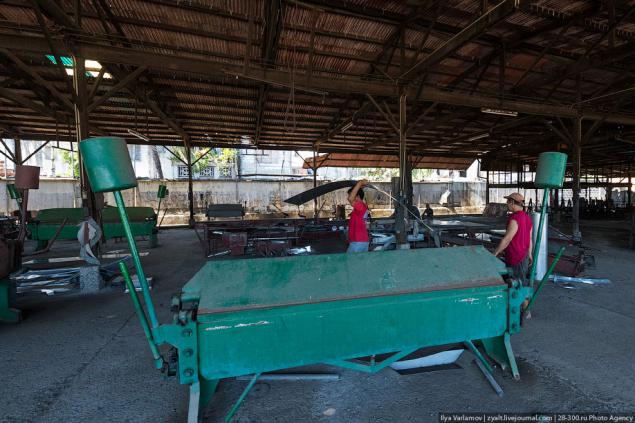
04. It curves on which the future of the body parts are cut from sheets of galvanized steel.
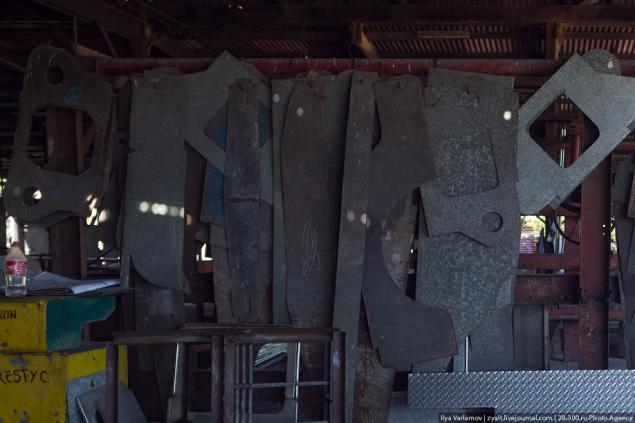
05. After the cut piece of the sheet body, manually give it the desired shape.
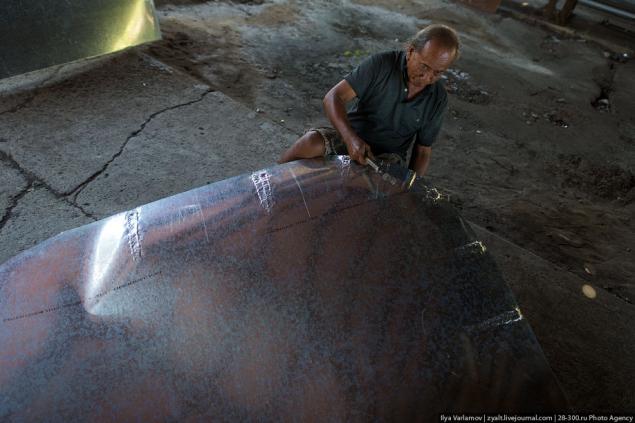
06. This part of the roof.
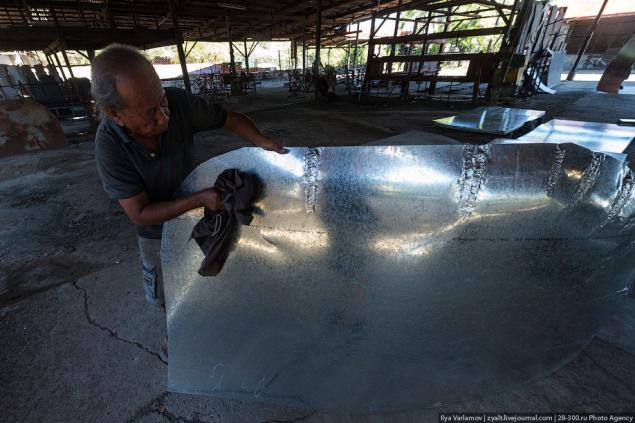
07. Further details are welded to the frame.
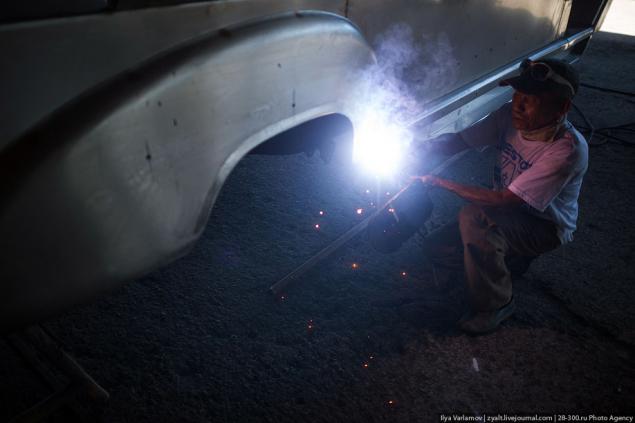
08. After some time, the body becomes familiar shape.
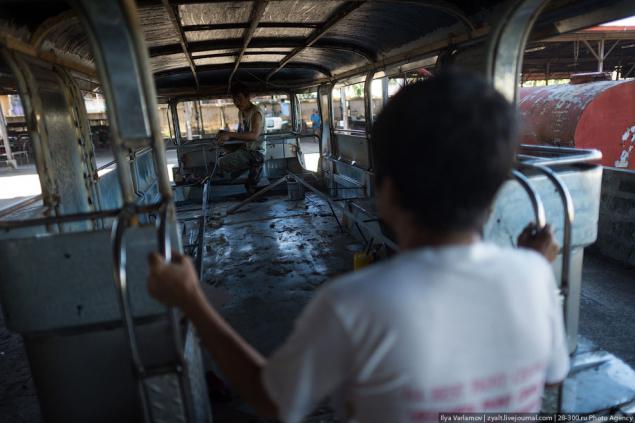
09. Master.
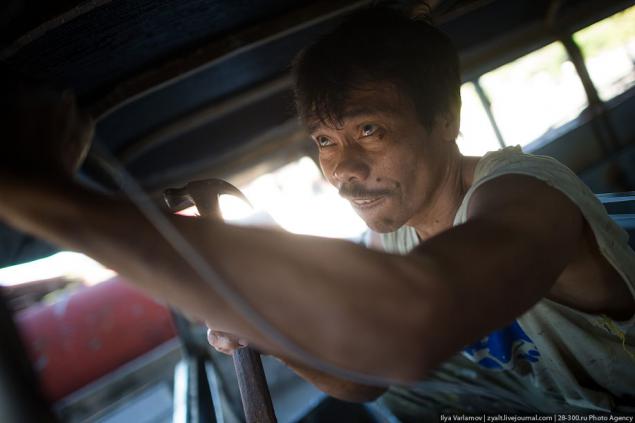
10. Spot welding robots
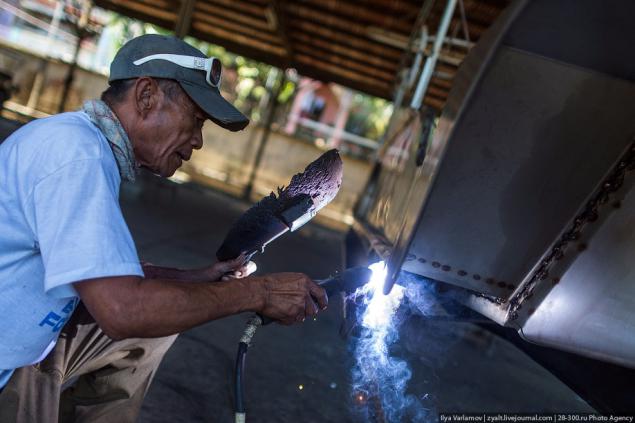
11.
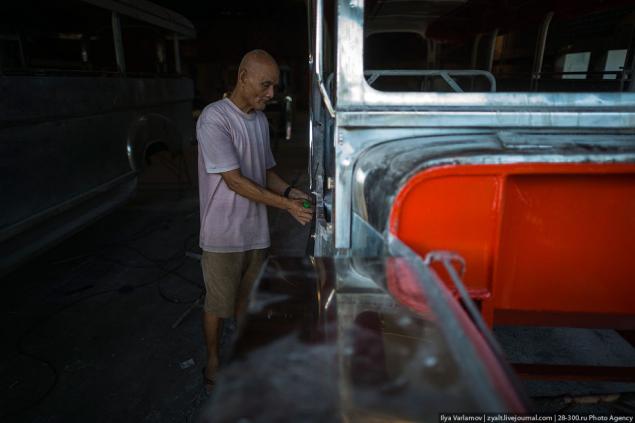
12. The shop looks like.
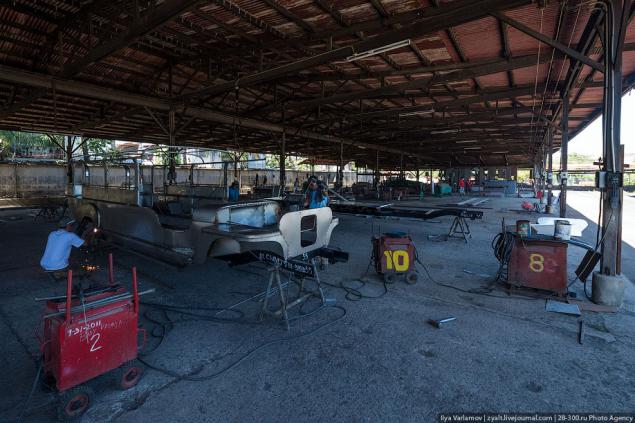
13. Soon it turns out the real jeepney and paint. Decorative wheel side is always with bald tires.
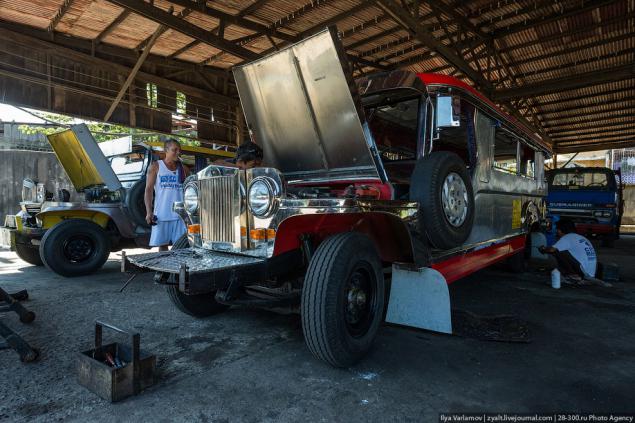
14. Procurement.
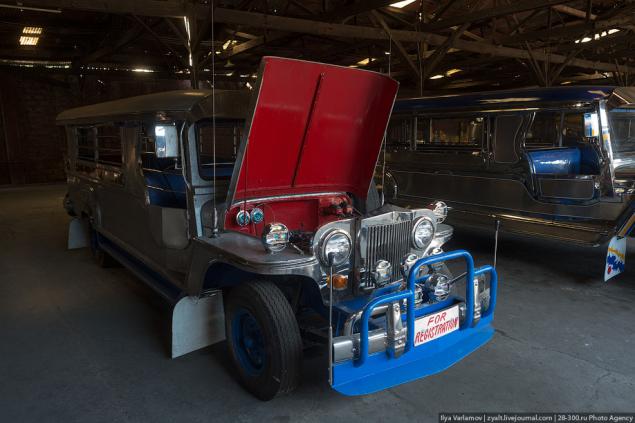
15. Engine increasingly put old.
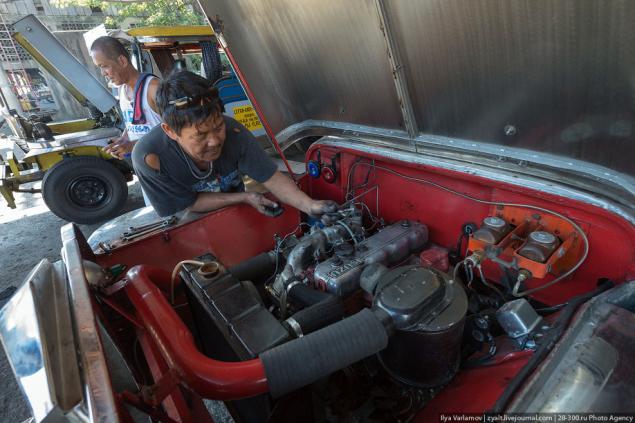
16. dzhippni use 4x 3-liter engine from the old Isuzu.
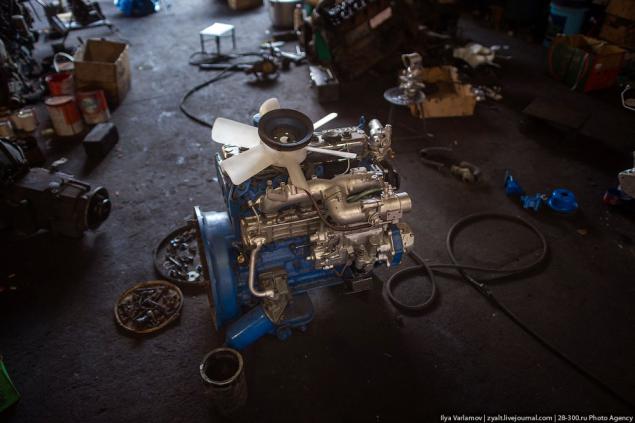
17. Sometimes putting new engines, sometimes carefully restored old.
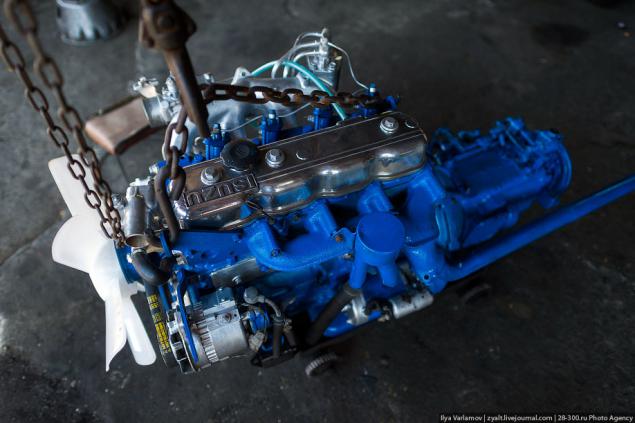
18.
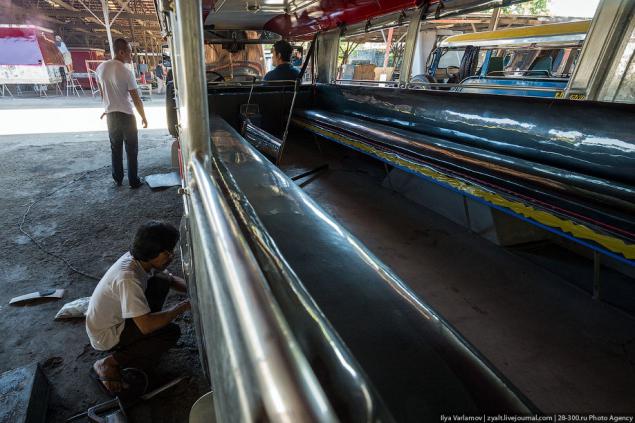
19.
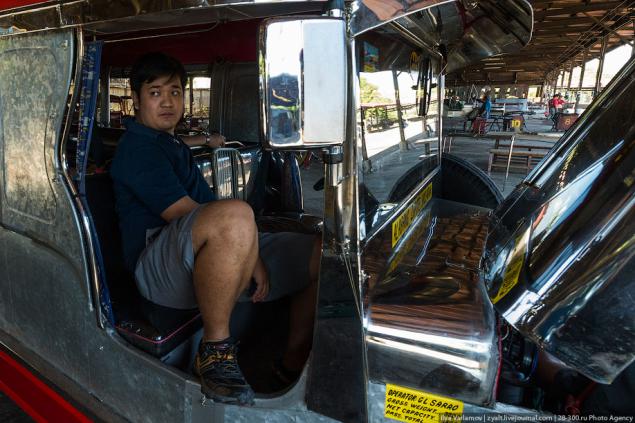
20
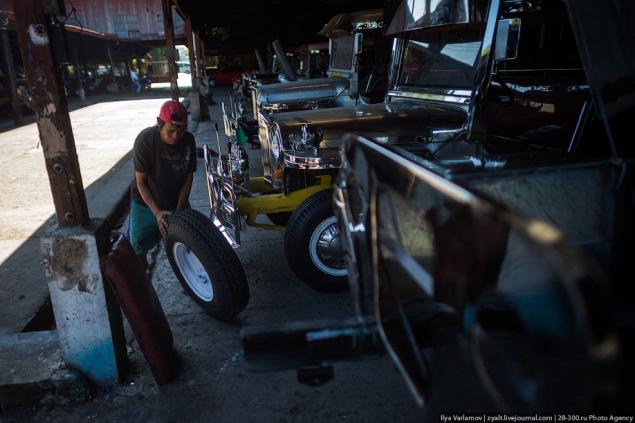
21. In the light of the cabin set. Side windows do not just head-on.
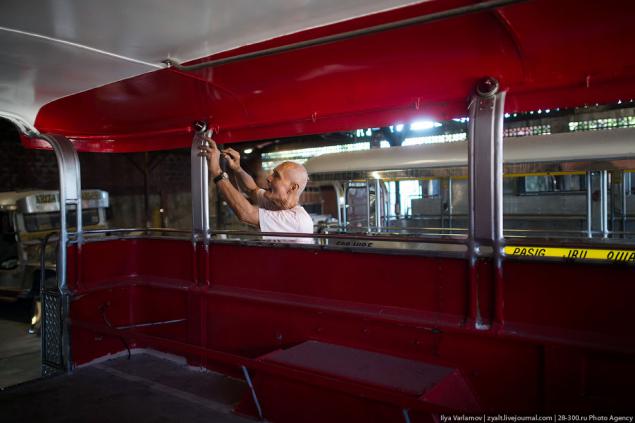
22. It makes the seat.
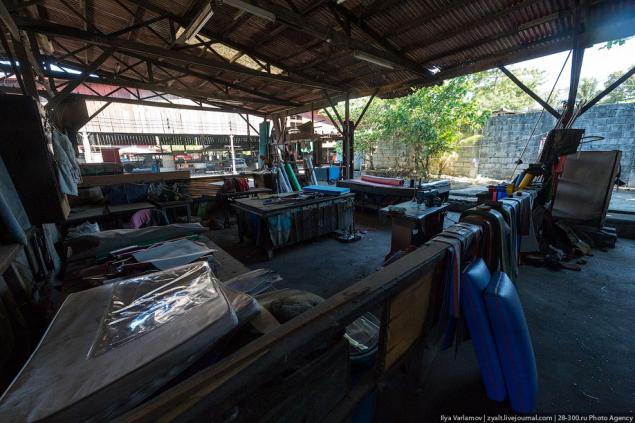
23. Seat stuffed with coconut fiber, but often in the course are old teddy bears.
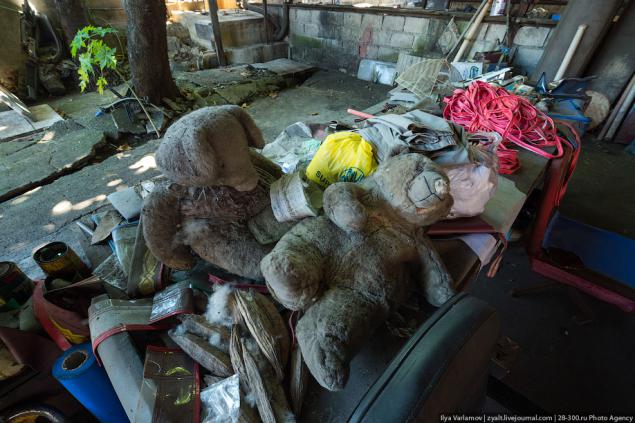
24. Beauty is ready.
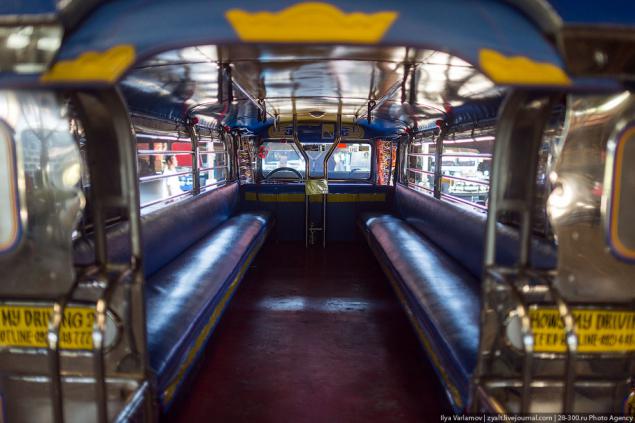
25. Then the car paint.
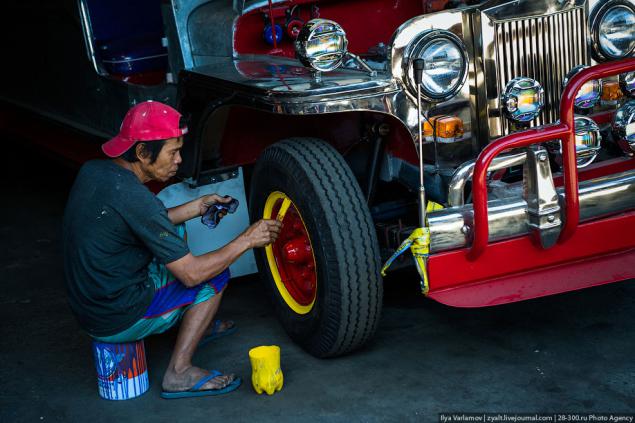
26. Here repairing old cars.
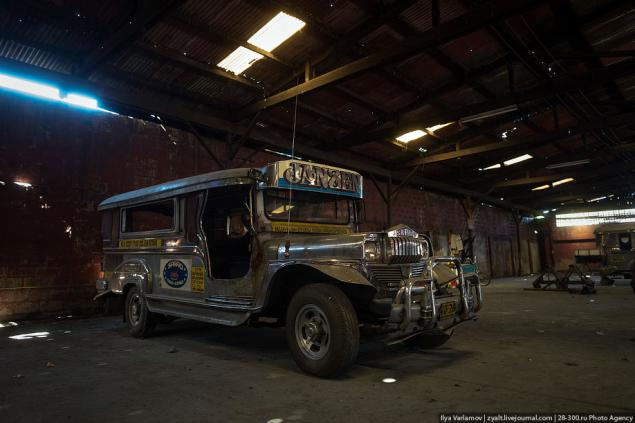
27. Two identical dzhipni not happen.
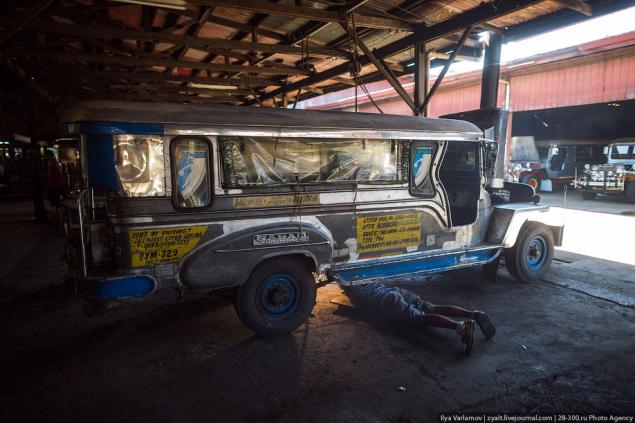
28. It also makes dzhipni for private use.
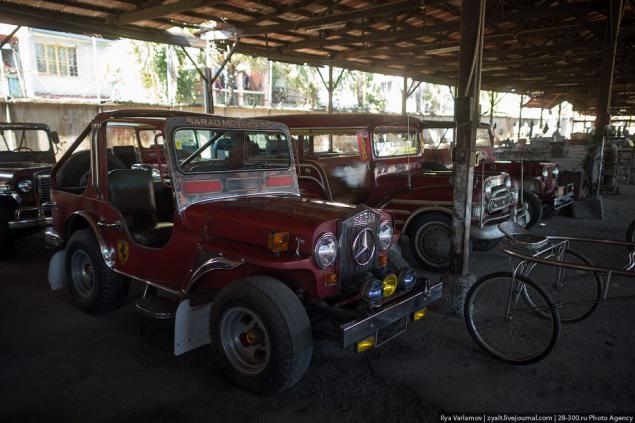
29. Or so.
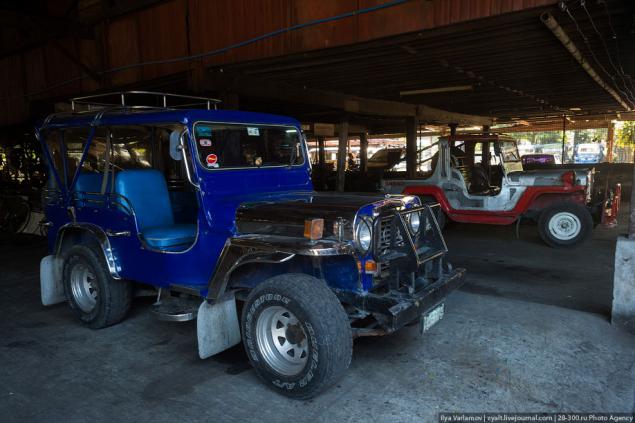
30.
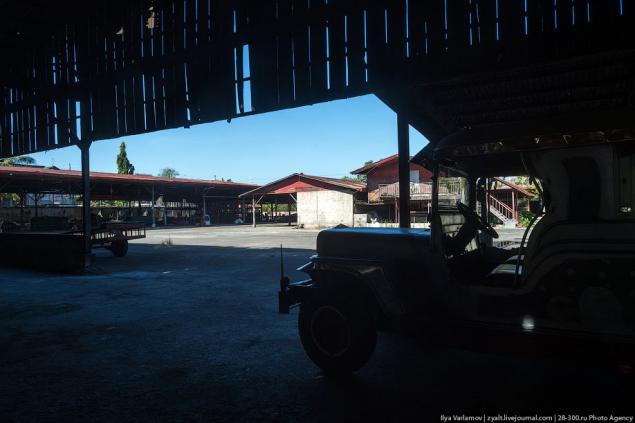
31
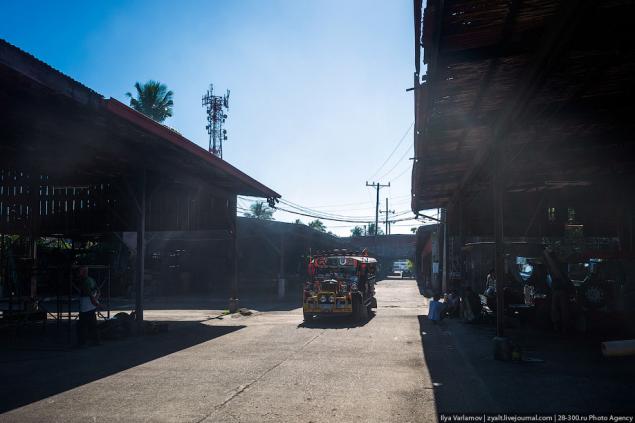
32. And behold, the machine is ready.
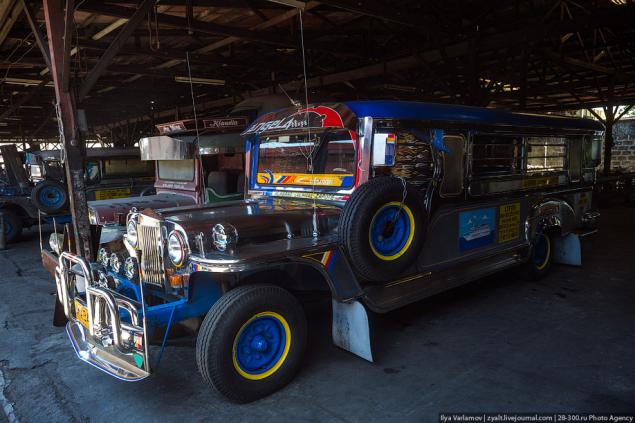
33. Beauty.
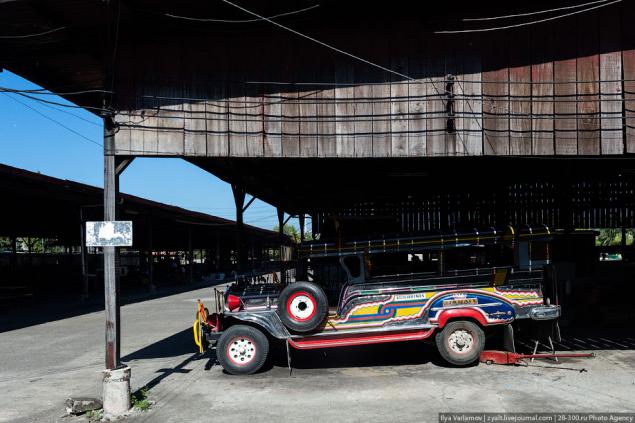
34. And this is the price. 10 Philippine pesos - is 7.5 rubles. As you can see, the newcomer dzhipni will cost 400,000 rubles, and the body without an engine can be bought for 170 000.
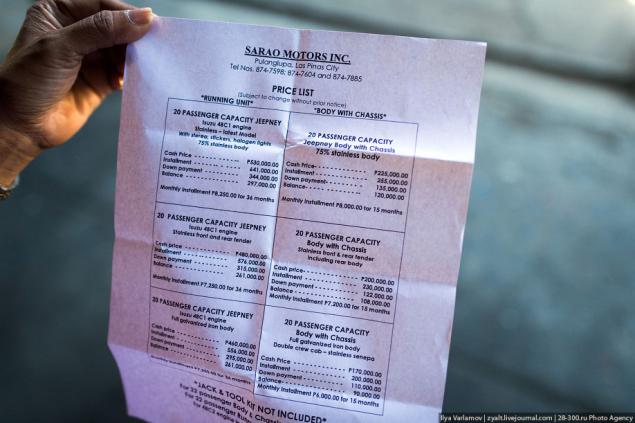
Source:
Today I'll show you how to make an unusual Filipino transport - buses jeepney. Initially, for the production of these unusual machines use the original US military off-road Jeep, which left here a lot after the war. Enterprising Filipinos elongated base SUV and make a bus. Soon, the original raw materials ran out, and the love of the jeepney, so called new car remained. Across the country there are hundreds of handicraft workshops where hand began to collect cars. There are large studios that produce several jeepney per month (all individual orders). Some craftsmen make dzhipni themselves. There are several factories where production put on stream. According to one of these plants, and today is our tour.
34 photos

01. Sarao was once one of the largest factories for the production of dzhippni. Now, after the death of its founder, it passed to his son, who in this case, apparently, not very knowledgeable, so production was strongly reduced.

02. Please make a primitive frame.

03. The only machine in the factory looks like.

04. It curves on which the future of the body parts are cut from sheets of galvanized steel.

05. After the cut piece of the sheet body, manually give it the desired shape.

06. This part of the roof.

07. Further details are welded to the frame.

08. After some time, the body becomes familiar shape.

09. Master.

10. Spot welding robots

11.

12. The shop looks like.

13. Soon it turns out the real jeepney and paint. Decorative wheel side is always with bald tires.

14. Procurement.

15. Engine increasingly put old.

16. dzhippni use 4x 3-liter engine from the old Isuzu.

17. Sometimes putting new engines, sometimes carefully restored old.

18.

19.

20

21. In the light of the cabin set. Side windows do not just head-on.

22. It makes the seat.

23. Seat stuffed with coconut fiber, but often in the course are old teddy bears.

24. Beauty is ready.

25. Then the car paint.

26. Here repairing old cars.

27. Two identical dzhipni not happen.

28. It also makes dzhipni for private use.

29. Or so.

30.

31

32. And behold, the machine is ready.

33. Beauty.

34. And this is the price. 10 Philippine pesos - is 7.5 rubles. As you can see, the newcomer dzhipni will cost 400,000 rubles, and the body without an engine can be bought for 170 000.

Source:











